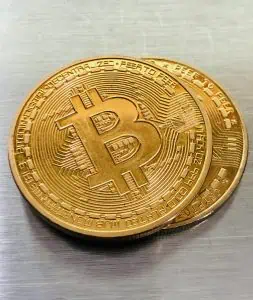 Venezuela is experiencing one of the worst economic crises in history. The South American country’s national currency, the Bolivar, has become practically worthless due to extremely high levels of hyperinflation (about 10,000,000% during 2019).
Venezuela is experiencing one of the worst economic crises in history. The South American country’s national currency, the Bolivar, has become practically worthless due to extremely high levels of hyperinflation (about 10,000,000% during 2019).
Venezuela’s residents are also suffering due to serious socioeconomic challenges, as the country has gone from being one of the wealthiest in the Latin American (LatAm) region to one of the poorest.
According to Chainalysis, cryptocurrency has taken on a key in the nation’s struggling economy. Venezuela’s digital currency market represents “a confluence of several topics at the core of cryptocurrency’s key value propositions and risk factors.”
Chainalysis further claims that the country has reached “one of the highest rates of cryptocurrency usage in the world.” Venezuela notably placed third on the blockchain security firm’s Global Crypto Adoption Index, as many of the nation’s residents now depend on cryptocurrency to receive remittance payments from individuals or businesses abroad. Venezuelans have also been using virtual assets to maintain their savings against record levels of hyperinflation.
The country’s contested government, which is led by Office of Foreign Assets Control (OFAC)-sanctioned Nicolas Maduro and well-known internationally for its corruption, has introduced its own so-called cryptocurrency initiatives. Maduro’s administration claims that the new digital currency will help the nation’s economy and its citizens.
Chainalysis confirms that Venezuelan officials have said that bypassing sanctions is one of the main goals of these crypto-related initiatives.
Chainalysis notes in its report:
“Aside from the concerns around sanctions violations, the Maduro regime’s cryptocurrency projects raise questions of whether people would embrace government-led efforts to utilize a tool initially designed to immunize currency from government financial policy — especially when that government has so squandered its people’s trust as Venezuela’s has.”
An extensive four-month investigation by Reuters in 2018 revealed that there was “no evidence” of the controversial, government-backed Petro cryptocurrency being used in Venezuela. There are several legitimate digital asset exchanges operating in the country, including LocalBitcoins. According to several reports, Venezuelans do use Bitcoin (BTC) and other virtual currencies like Dash. However, many of them have said they don’t trust the Petro and do not think it’s a legitimate store of value or medium of exchange.
Chainalysis notes:
“We … have a lot of anecdotal evidence that people in Venezuela have become increasingly interested in cryptocurrency. That fits with our interviews of cryptocurrency experts on the ground in Latin America — users not just in Venezuela, but in other countries facing harsh economic conditions, turn to cryptocurrency to preserve their savings in the face of monetary devaluation.”
They added:
“Cryptocurrency is also important for remittances. Roughly 5 million Venezuelans have left the country to seek opportunity elsewhere during this economic crisis, and many of their friends and family back home rely on them to send money from abroad. Cryptocurrency is hugely helpful here, as users can use it to send funds overseas faster and with lower fees than they can with fiat. Cryptocurrency also enables them to do this without a bank account, which is difficult to obtain for many Venezuelans.”

